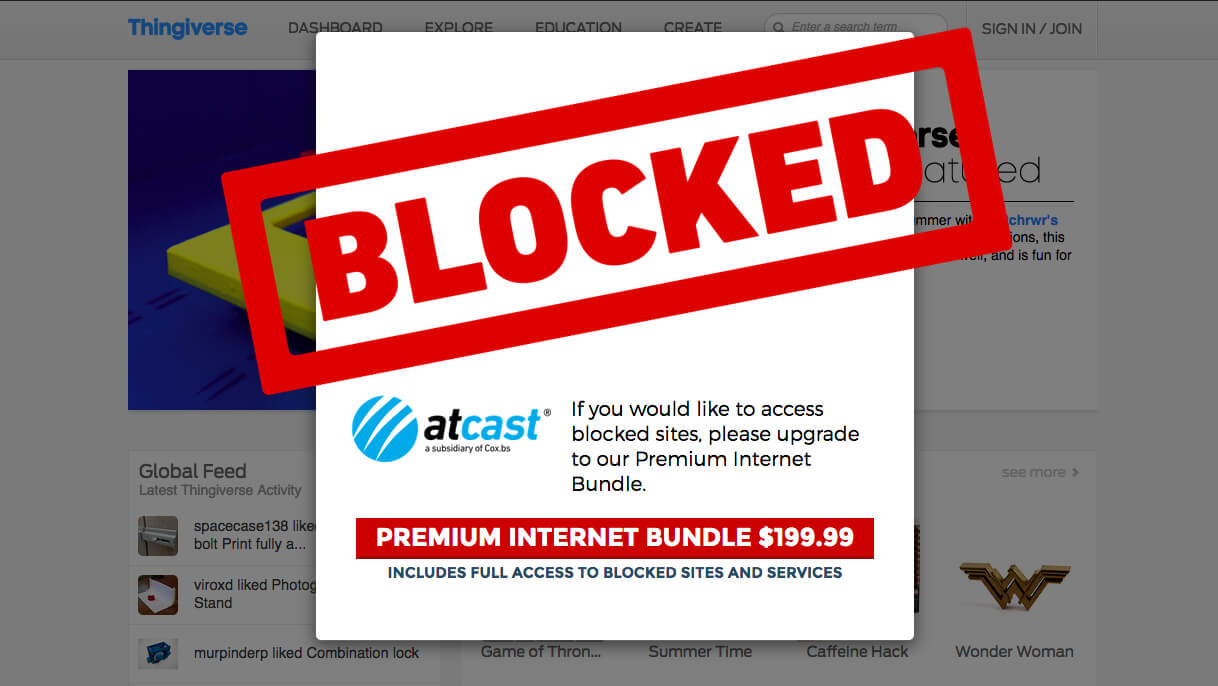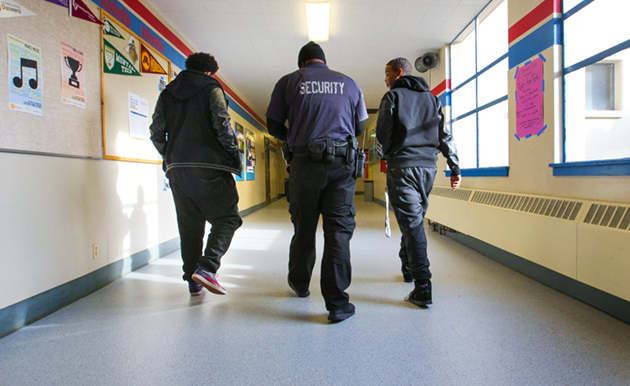
www.abcnews.com
By SUSANNA KIM

After an appeals court struck down the Federal Communications Commission’s rules intended to provide equal access for online content, policy experts said they fear the Internet will begin to look more like the business of cable television, with more fees and poor service.
Under net neutrality rules adopted by the FCC in 2010, broadband providers, including Time Warner Cable and Verizon, were prohibited from prioritizing certain Internet traffic. But a three-judge appeals court ruled on Tuesday that the FCC’s anti-discrimination rules, which require broadband providers to provide the same kind of access to nonprofits and startups that large companies like Netflix receive, may be overreaching.
Read More: Net Neutrality Rules Struck Down by Appeals Court
FCC Chairman Tom Wheeler said in a statement that the commission will consider its options, including whether to appeal or draft new rules. Congress could also change the Telecommunications Act of 1996, which gave the FCC authority over companies depending on whether they are a common carrier. Common carriers are public like telephone networks, and they cannot discriminate against consumers. The FCC categorized Internet service providers as information services instead of telecommunication services, which exempted them from common carrier rules.
Here’s a list of things that could dramatically change how the Internet as you know it works because of the court ruling:
1. Degraded service
Services that consumers use without paying a special fee to Internet service providers (ISPs) will not work as well because they will be excluded from the ISP’s “fast lane,” said Michael Weinberg, vice president at Public Knowledge, a digital advocacy group in Washington, D.C.
2. Higher costs
Another short-term consequence is that services offered by an ISP that now have a fee will be more expensive, because those companies may pass the fee on to users, Weinberg said.
Companies like Netflix, which is the largest user of bandwidth in the U.S., may pay more to ISPs to make sure their content is accessible to customers.
However, the major broadband providers, like Comcast, have pledged not to discriminate. Verizon, which filed the case against the FCC, said the court decision “will not change consumers’ ability to access and use the Internet as they do now.”
Still, the companies have not committed to a specific time frame and are not bound legally to do as they say.
3. Less innovation
Though innovation of late heavily involves the Internet and Web-enabled devices, Weinberg said he fears that the court ruling will lead to fewer new innovative services in the long term.
“ISP fees will make it more expensive and harder to launch new services, especially for small companies not tied to existing players,” he said. “Ultimately, the Internet will look more like cable television — with a handful of players and a high barrier to entry — and less like the Internet as we know it today.”
Joris Evers, director of global corporate communications for Netflix, declined to comment but pointed to a statement from the Internet Association, of which Netflix is a member.
The association said it looks forward to studying the D.C. Circuit Court’s opinion and working with the FCC and policymakers to protect Internet freedom.
“The Internet Association supports enforceable rules that ensure an open Internet, free from government control or discriminatory, anti-competitive actions by gatekeepers,” the association said, implying that the FCC should take a leadership role and follow guidance set by the court to take control.
4. Uneven service: faster service for some
“Operating under the assumption that paid partnerships between ISPs and content providers will equal faster Internet and a better consumer experience, the consumers and content providers in these examples would likely be losers,” said Jessica Rothschuh, a business development manager for ZeroDivide, a nonprofit group that advocates for under-served communities for technology issues.
“In the case of the local media outlet, for example, which would be unable to pay more to be delivered on the ‘fast lane,’ they may find that their consumers leave their site before the multimedia content loads,” she said.
5. Greater technological divide by income, demographic
ZeroDivide President and CEO Tessie Guillermo said her organization was disappointed by the ruling.
“The headlines have focused on the possible loss of cheap streaming movies and TV shows, but we as a society stand to lose much more,” she said in a statement.
In addition to Netflix, other content providers that provide educational opportunities or patient-health communication will be unable to share their content, he said. She said he hopes the FCC will appeal the case to the Supreme Court so services like video conferencing platforms will not be limited by burdensome costs.
“A child in a rural area who loses the ability to video conference with her physician specialist, a single dad who can no longer take his online college courses or a community media outlet in the inner city that is charged more to distribute its news — these are real losses,” Guillermo said.










